In memoriam: Susan Holden (21 October 1941–20 July 2023)
To remember Susan as we should (being the founder of Modern English Publications Ltd, and first publisher of Modern English Teacher), I invited friends and colleagues to share some words with me, describing what impact she had on all of us, both personally and professionally.
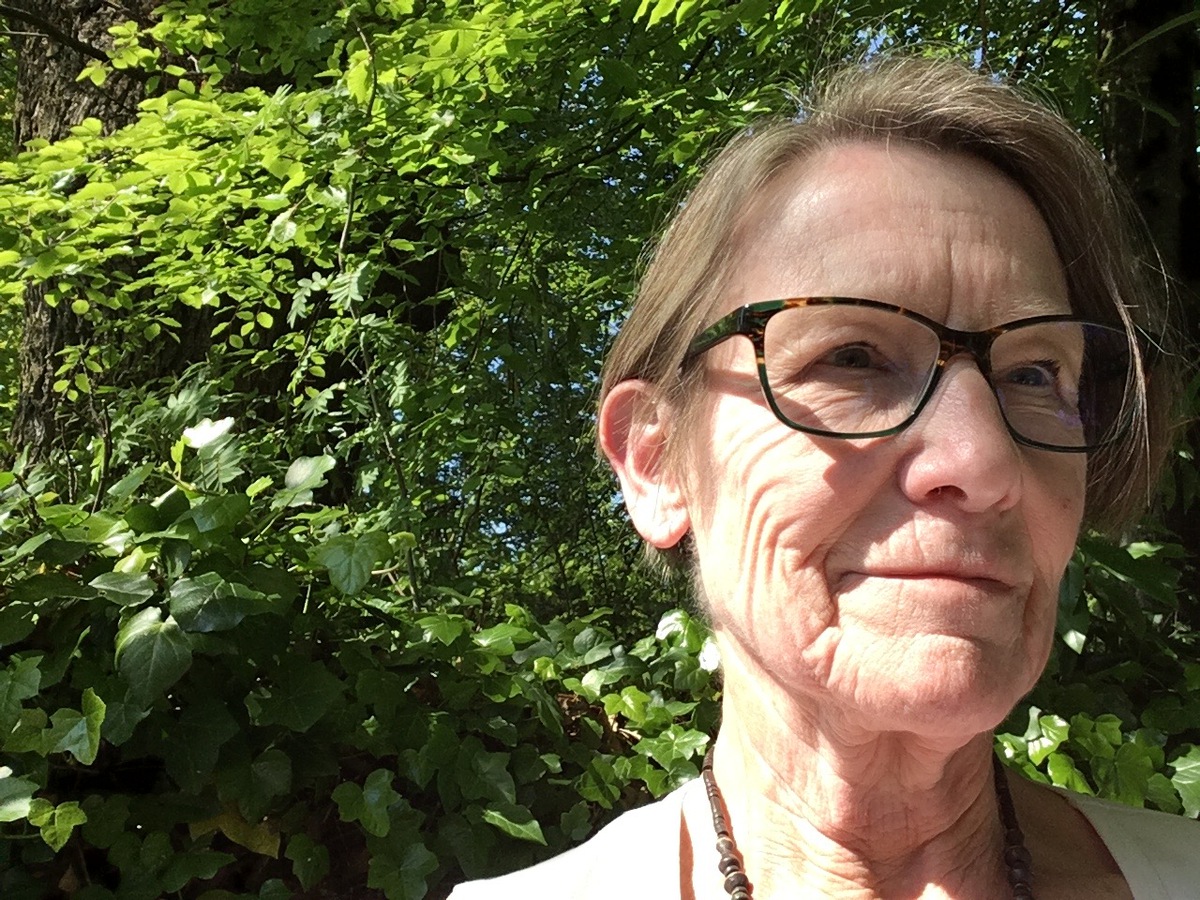
Hearing the news that Susan Holden had just passed away filled me with much sadness. She was such a lovely person – clever, witty and kind – who has had a far-reaching impact on the world of English language teaching through her exceptional career, dynamism, insights and shared wisdom.
Back in 1972, she made her mark by publishing the first iteration of Modern English Teacher with its quarterly issues, which proved so popular that in 1978 the first book Selections from MET (featuring articles from the first four volumes) was published, with the second book being published in 1983. Little did she know, MET was such a groundbreaking magazine it would still be published today, over 50 years later!
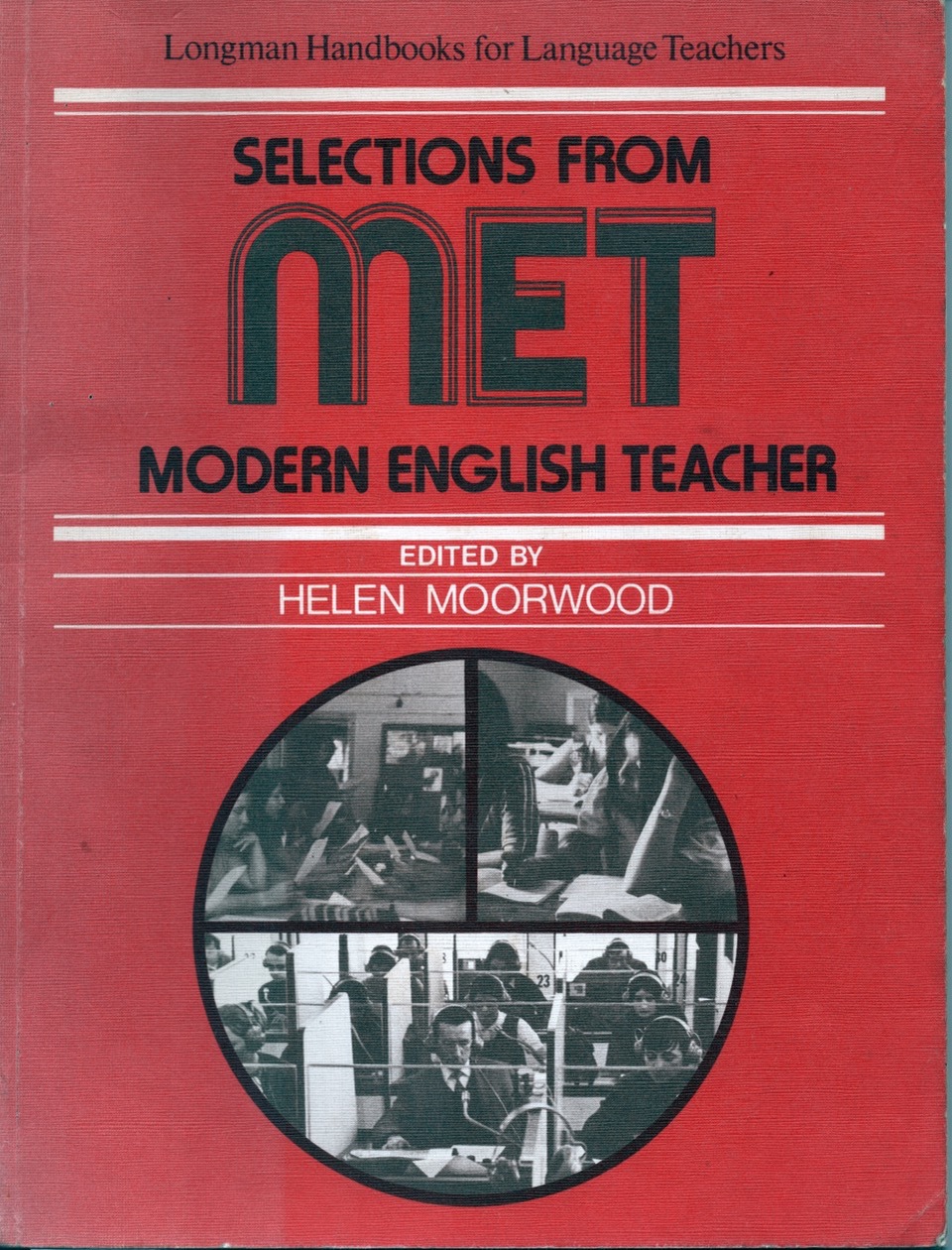
Thanks to her dedication and vision, Susan was also integral to the startup and growth of Modern English Publications Limited, a company founded in the early 1970s that laid the foundations for Pavilion ELT at Pavilion Publishing and Media Limited as it stands today.
More of that later – let’s first look back to how she got started. Susan Holden originally trained to teach Drama in UK schools (she qualified from Central School for Speech and Drama, London), and soon found herself lecturing at the renowned drama schools of RADA and CSSD. Five years later, the opportunity arose to go Latina, Italy so Susan took the steps to retrain as a teacher of English as a foreign language and went on to have a long and varied experience as a teacher, teacher trainer, magazine editor, author and publisher for both international and regional markets. Her career was going to stand her in good stead – her work back in the 70s through to the mid noughties has been integral to what Pavilion ELT is today. I am incredibly proud to be carrying on her legacy, and to be publishing Modern English Teacher more than 50 years on from when it first reached subscribers.
Thinking back to the 70s, when a large proportion of women were still housewives, and when few had reached positions of influence in the English language teaching industry, it was revolutionary to take a magazine that had started life as a school in-house journal six years earlier (with their blessing) and to professionalise and publish it as a quarterly magazine (for a small subscription) as Modern English Teacher. Her remarkable vision of providing accessible teaching resources and aids to teachers working in a variety of teaching situations all over the world didn’t stop there because she also founded its publishing house Modern English Publications Ltd, which went on to publish a great number of books, ranging from Visual Aids for Classroom Interaction (1978) and Teaching Writing Skills (1979) to Teaching Children (1980) and A First Book of Board Games (1980), to name but a few. I love how even in the early days, ‘the most important thing about Modern English Teacher is that it is a magazine written by teachers for teachers’, a line we still use today. To remember Susan as we should, I invited friends and colleagues who knew her back then and/or who worked with her at the publishing house (or the imprint when it was brought into house by the publishing giants Longman and Macmillan in the 80s and 90s – I’ll be covering more of MET’s history at a later date) to share some words, describing what impact she had on them personally and professionally.
Susan Holden: writer, editor, publisher and friend
‘Along with her many friends across the globe, I was deeply shocked and saddened to learn of Susan’s recent death. I had known her since the early 1970s in Italy, and we had become lifelong friends.
She was a major figure in the development of ELT, first as the author of books like Drama in Language Education (1981), then as editor of many important collections. These included the hugely influential selections from the British Council / Italian National conferences in Milan, Bologna and Sorrento in the 1980s which came out as joint British Council and Modern English Publications. She worked with major publishers such as Longman and Macmillan – but really came into her own as a publisher with the establishment of Modern English Publications. As such, she is the continuity factor between MEP back then and Modern English Teacher today. We owe her an enormous debt of gratitude.
As an editor, she was both demanding and sympathetic, but also a fund of ideas she shared with authors, so that editing, in her hands, became a kind of co-creation. She was also incredibly generous with her time and professional support for novice writers in particular.
Susan was fiercely independent, committed to working outside the mainstream constraints of the mega-publishers, and offering an alternative channel for the spread of new and exciting ideas. Her last publishing venture, Swan Communication, was a small but typically feisty venture in independent publishing.
She will be greatly missed.’
– Alan Maley
‘Susan was an academic light! Tireless pursuer of quality, and so generous with her support of others. She truly cared.’
– Dorothy Zemach
‘I met Susan several times in various places in Brazil during the last 30+ years. She was a key figure in the ELT world, contributing greatly to making it a better place including by the dint of her warm personality. MET will probably be regarded as her greatest legacy.’
– Roddy Kay
‘I last met Susan at IATEFL in Belfast in the Spring of 2022. We had our usual brief catch-up on the state of the industry and how my family were getting on. Susan knew my children as toddlers, and they are now in their mid-30s, so it is fair to say we had known each other for a long time. I had assumed that there would be more opportunities in future years to put the world to rights and to show her pictures of my grandchildren but alas this is not to be, and my heartfelt condolences go out to Susan’s family at this very difficult time.
Our relationship itself spans 35 years, since 1988 when Susan took a punt on a rookie ELT consultant working for Longman in Japan and brought him back as sales and marketing manager for an ELT publishing list she was spearheading for Macmillan. However, long before we met, I was already aware of Susan – her passion for ELT and the focus of the role of the teacher in the classroom. Like her contemporaries Peter Viney, Jeremy Harmer, Robert O’Neill, Alan Maley, Brian Abbs and Ingrid Freebairn to name but a few, she was engaged in rolling back the dark clouds of grammar translation and teacher-centred lessons in favour of a methodology that actually encouraged students to use English in the classroom. The 80s were a time of rebirth for the industry. Looking back over the years it seems incredible even now that this simple premise was so revolutionary. Simply put, my generation of ELT teachers and publishers growing up in that era stood on the shoulders of giants.
However, Susan was not just a theoretician and realised early on that ideas in the abstract would not by themselves bring about the change in classroom practice that was required. Consequently, when I first met her, she was a publisher dedicated to translating communicative methodology into learning resources. Over the next two-and-a-half years, I was swept up by the maelstrom that was Susan Holden in the early 90s as she commissioned books, edited books, published books, promoted books and hopefully sold some books. I followed Susan around the world as we attended conferences, met distributors, visited institutions and worked with ministries of education to stimulate change.
Throughout this period, I was awestruck by the extent of her network – from Culturas in Brazil to Scuola Superiore in Italy and Frontisterias in Greece – and the universal respect with which she was held. This combined with her passion for books and teaching made this period of my publishing apprenticeship quite unforgettable. Her vision and energy, however, were combined with a work ethic and work rate which needed to be seen to be believed. I remember particularly my first visits to Frankfurt bookfair with Susan where meetings ran from 8am to 8pm followed by networking dinners which continued on into the early hours, but woe betide you if you were not back at the stand for duty at 8am because Susan would be there.
In [later] years my contact with Susan has been limited to conferences and industry events where we continued to share stories, family updates and reflect on the early years of our missionary work. Looking over the last three decades and the rise of English as the global lingua franca with the almost universal acceptance of the central role of communicative methodology in forging student learning, it is difficult to imagine this outcome without the contributions of Susan and her generation. For me personally, without Susan’s help and support in those early years my trajectory in this wonderful ELT publishing industry could have been much different. So, Susan with the heaviest of hearts I salute you for one final time.’
– Mike Thomson
‘In my day at IH Susan was very much a free spirit, rather than just one of the teachers, and she was friends really with John Haycraft (the founder of IH). I remember her warmly and had many good conversations with her, often at conferences in far flung places – once with her dear partner of those days, Donn Byrne, the BC ELT man who wrote among other things Teaching Oral English (1986). I always remember her as someone who was keen to publish chalkface-based materials. And [as such, I] was delighted to join the board of MET when it was still at Macmillan.’
– Roger Gower
‘I first met Susan at the British Council Summer School in Stirling University in 1988, when she took over as director of studies. The slant of the course was ELT methodology and there was a well-stocked resource centre, to which she was an excellent guide and mentor for the participants. A fair number of those came from eastern Europe and at that time the materials they could use at home were limited, so the range available at Stirling was something of a revelation. During the courses Susan also delivered lectures on materials, which were insightful and greatly appreciated. She was also an excellent DoS.
In 1992 I joined the newly relaunched MET as editor of the About Language section. Susan stayed with the magazine as publisher and steered it successfully until the end of 1995, when it passed to Phoenix ELT. What I best remember about the first editorial board meeting I attended, in late 1991, was that we had lunch in Ye Olde Cheshire Cheese, a fine pub which was near the Macmillan offices at the time. After that things went a bit down in historical terms. At one point we met in Shell-Mex House, an absolute nightmare. Anyway, the magazine did rather better.’
– David Maule
‘I first met Susan in her professional editorial and publishing capacity well over 40 years ago when she accompanied her husband Donn Byrne to give a talk at the British Council Lisbon where I’d recently been employed as a young teacher. I remember Susan from that initial encounter as fearsomely intelligent and knowledgeable about ELT with a sharp, enquiring mind, lively curiosity and genuine interest in finding out about what we teachers actually did in the classroom and why. And, although I didn’t realise it at the time, that approach and attitude was a hallmark of Susan’s professional life, whether working as editor, publisher, writer, teacher educator or conference speaker: her ability to interrogate theory and research and apply it to the real needs, concerns and constraints of classroom practitioners in an understanding and humane way.
Over the years, I met up regularly with Susan at IATEFL and other conferences and we invariably always found time for a coffee and chat together. Although I never worked directly with Susan, she was incredibly kind and generous to me with her professional advice and support, and I know that I am one of many in this respect. She also had a wicked sense of humour which built a delightful bond and always made those encounters even more enjoyable. Susan was also immensely thoughtful; on several occasions she dropped me a line with comments and feedback after she’d been to one of my talks and, when I was slightly apprehensive about becoming president of IATEFL in 2013, her view of having a person involved in teaching young learners in this role to enable IATEFL to reach more teachers globally was tremendously encouraging.
Susan was also a long-time colleague and friend of my husband Alan Matthews, and on several occasions she came to have dinner with us at home. One time, in the early days, when we were living in a small flat in central Madrid, I remember her tolerating with great good humour the early evening antics of our two small children and even reading them a bedtime story. More recently, and indeed the last time we both saw Susan in an extended way, we spent much of an evening fondly reminiscing over events and people and how ELT and publishing have changed. Susan also kindly invited us to go and stay with her in Scotland although, due to the pandemic and various other reasons, that unfortunately never happened.
In many ways, the loss of Susan feels for me as if it marks the end of an era in ELT. Susan was special not only in her ELT knowledge, publishing, editorial and writing skills but also in her kindness and generosity in sharing this with others. Alan and I feel fortunate to have known Susan as a colleague and friend over so many years. She will be sorely missed by us and by many.’
– Carol Read
As Pavilion ELT has grown and strengthened, and indeed during my own career, Susan has been an unwavering support, as well as being a wonderful sounding board and ally to me personally – all things I'm very grateful for – and her positive feedback and comments after she had been at an event or seen something I’d done never went amiss. Susan was pleased I was sharing the same ethos as her: to give fledging authors a chance, to publish more maverick, controversial and/or innovative books, and to give teachers a voice all around the world. What a legacy she created, and then encouraged me to continue! I don’t think there is a single publisher I’ve worked for where I haven’t seen Susan Holden’s name on contracts and older documents – having a shared history makes me feel so proud and honoured – but it went far beyond the signatures as Susan was always so willing to share her knowledge and advice, while being someone to bounce ideas around with. I feel so appreciative that I had the chance to get to know her like I did.
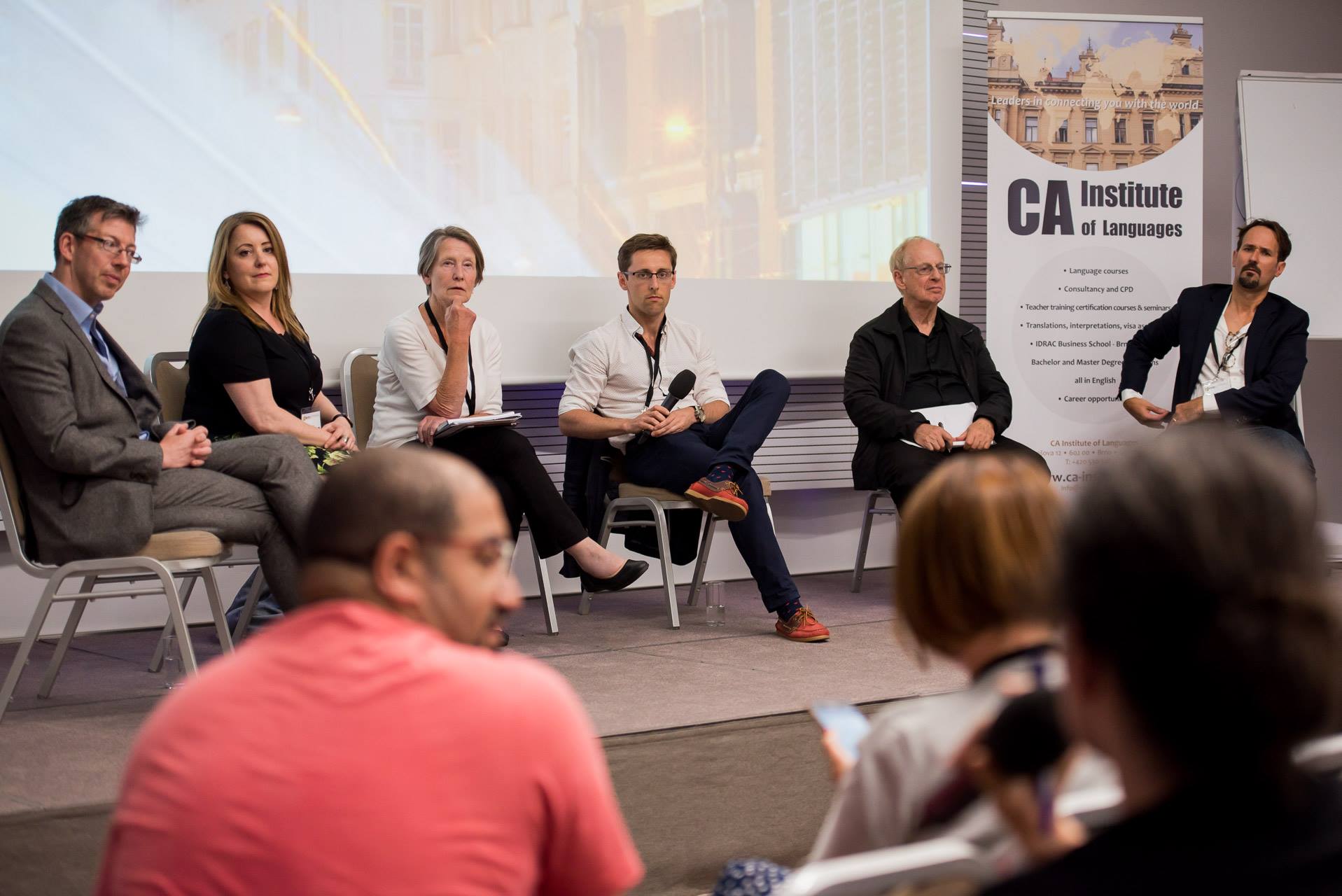
It was an absolute joy to feature on a panel with Susan at the International Language Symposium Brno back in 2017 – we ended up being on it together after there had been a hoo-hah about the number of women versus men on the panel (I’d been the only one with four men) and jointly, succinctly and convincingly we set the world to rights (metaphorically, of course!). We had such a laugh about it that evening, and later still, we were overjoyed to hear our actions and comments afterwards contributed to the creation of Equal Voices in ELT (EVE) – an organisation that promotes equality and fair representation at conferences worldwide.
Typically for Susan, when she came to talk at ‘Pavilion ELT Live!’ a few years ago, she told me she was going to be ‘revolutionary – do it without slides’ and applauded my efforts in running ‘a “different” event that started with a purpose and ended with a forward-looking discussion, and had lots of opportunities for genuine thinking, discussion and getting to know people’. I have never known someone to be so encouraging whatever you were turning your hand to, and feel immensely sad the conversations we were due to have will go unfinished.
I think it’s fair to say my experience is not unique … her passion, knowledge and unwavering support have enriched the lives of countless individuals within ELT and will remain treasured – her contributions will continue to influence and inspire educators, authors and publishers in years to come. We're going to miss her greatly.
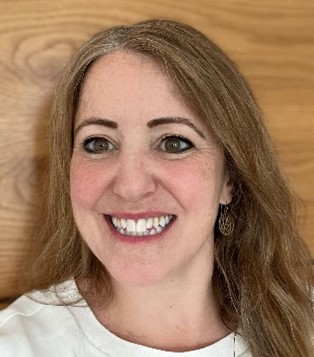 Kirsten Holt, is the Head of Pavilion ELT at Pavilion Publishing and Media Ltd, having worked in publishing for over 17 years. Previously, she worked in education for a similar length of time, first as a teacher/ and materials writer, then as a teacher trainer, before becoming a Director of Studies and trainer of teacher trainers. Kirsten is passionate about supporting teachers, authors and editors alike in their continuing professional development, as well as investigating ways to respond to the evolving world of education
Kirsten Holt, is the Head of Pavilion ELT at Pavilion Publishing and Media Ltd, having worked in publishing for over 17 years. Previously, she worked in education for a similar length of time, first as a teacher/ and materials writer, then as a teacher trainer, before becoming a Director of Studies and trainer of teacher trainers. Kirsten is passionate about supporting teachers, authors and editors alike in their continuing professional development, as well as investigating ways to respond to the evolving world of education
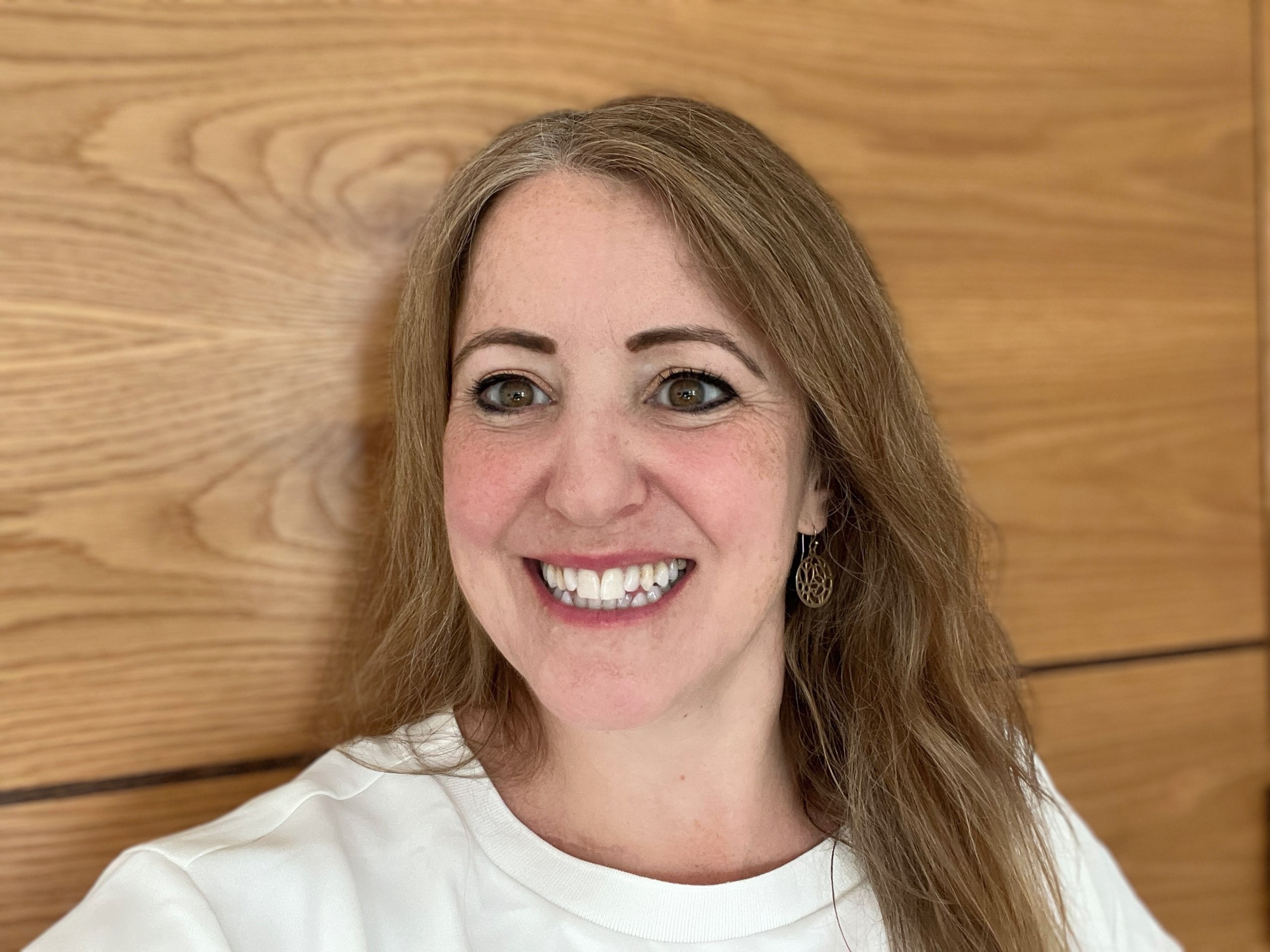

Comments
Write a Comment
Comment Submitted